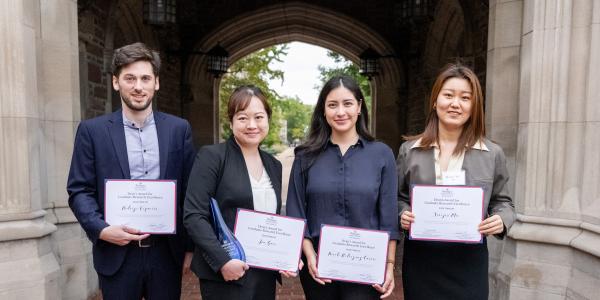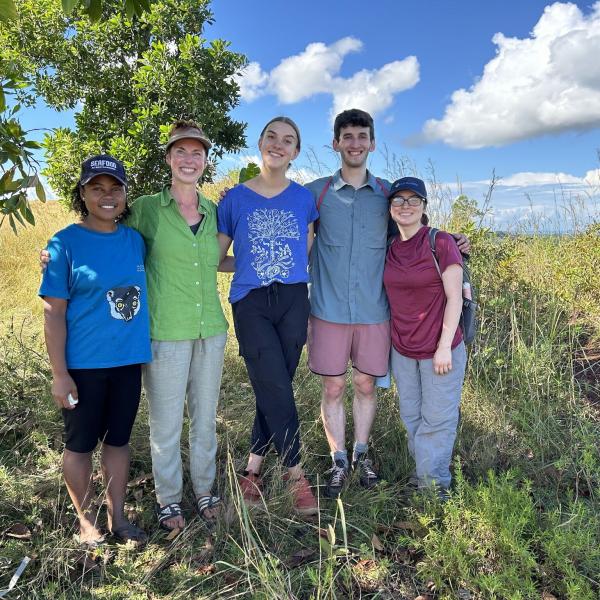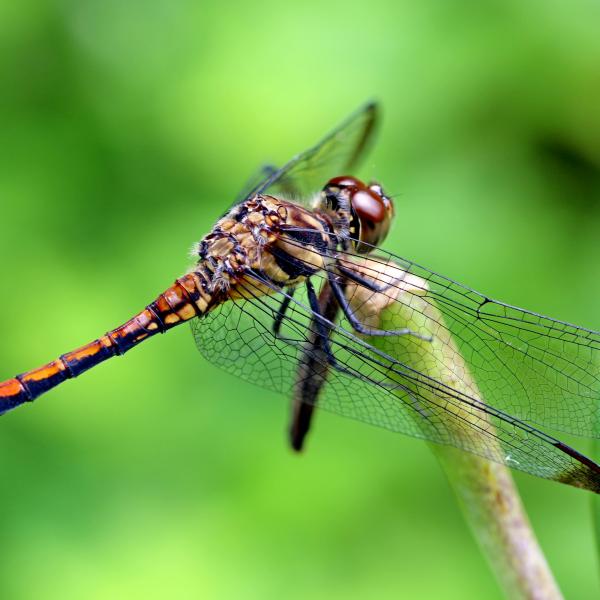Faculty and university leadership selected Jia Gwee, a graduate student in biology, as the winner of the 2023 Dean’s Award for Graduate Research Excellence. Ten additional graduate students were also recognized.
Earlier this month, finalists for the 2023 Dean’s Award for Graduate Research Excellence had the opportunity to present their work to faculty and university leadership, including members of the Arts & Sciences National Council. After rounds of lightning talks, the council selected Jia Gwee, a doctoral student in biology, as the overall winner of the prize.
Departments and programs across Arts & Sciences could nominate up to two graduate students for the award, which recognizes outstanding achievements in research or creative practice from the past two years.
Sophia Hayes, vice dean of graduate education and professor of chemistry, introduced the finalists and discussed the importance of graduate students and their research. "Graduate research is one of the pillars of our university," Hayes said. "Universities offer a terrific intellectual legacy of deep scholarly achievement, and these graduate students facilitate that. They show the best pieces of Washington University and Arts & Sciences, and this next generation that we're training and sending out have fantastic skills in communication, teaching, research, and more."
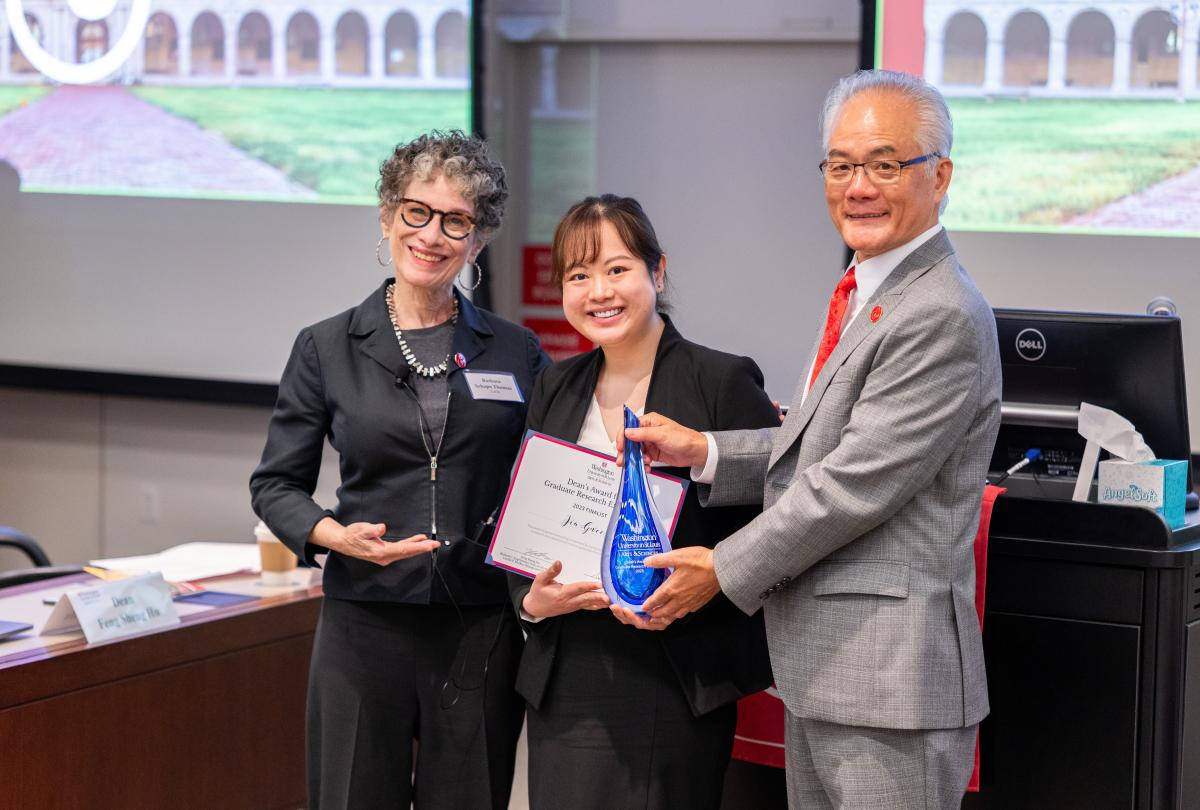
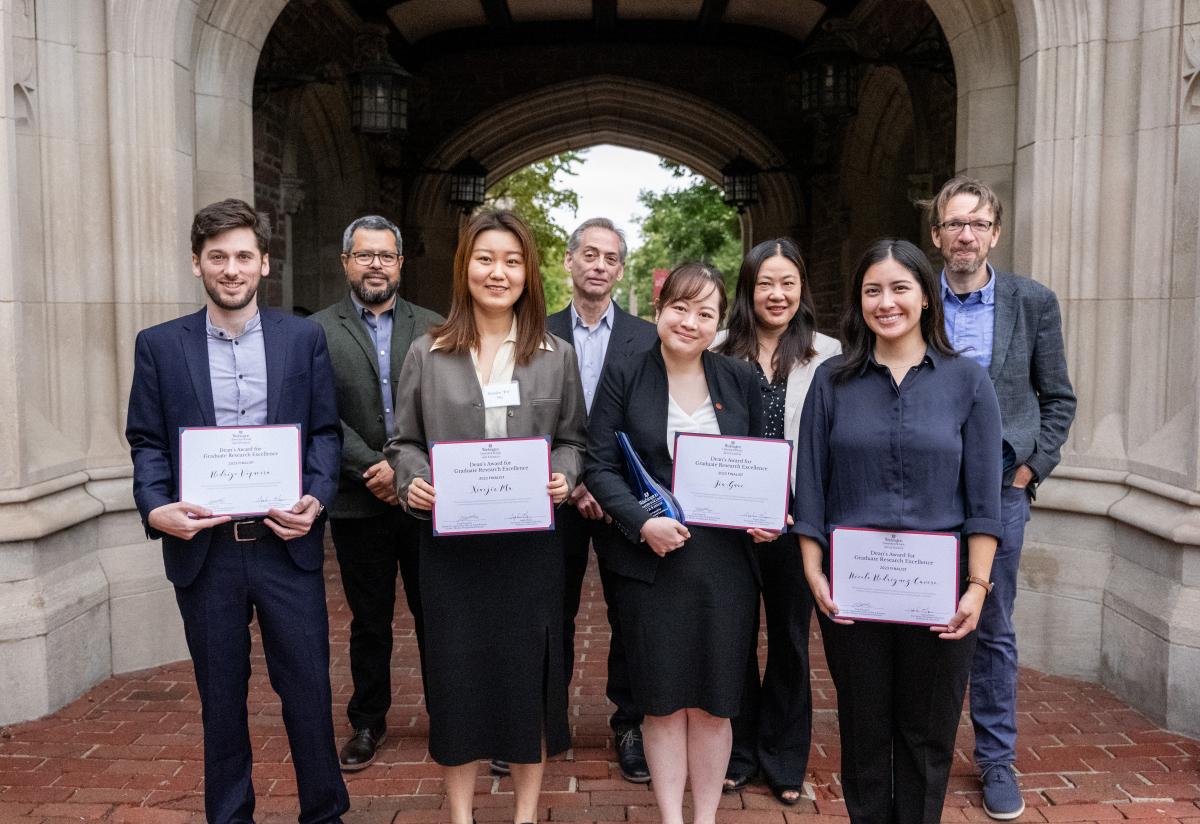
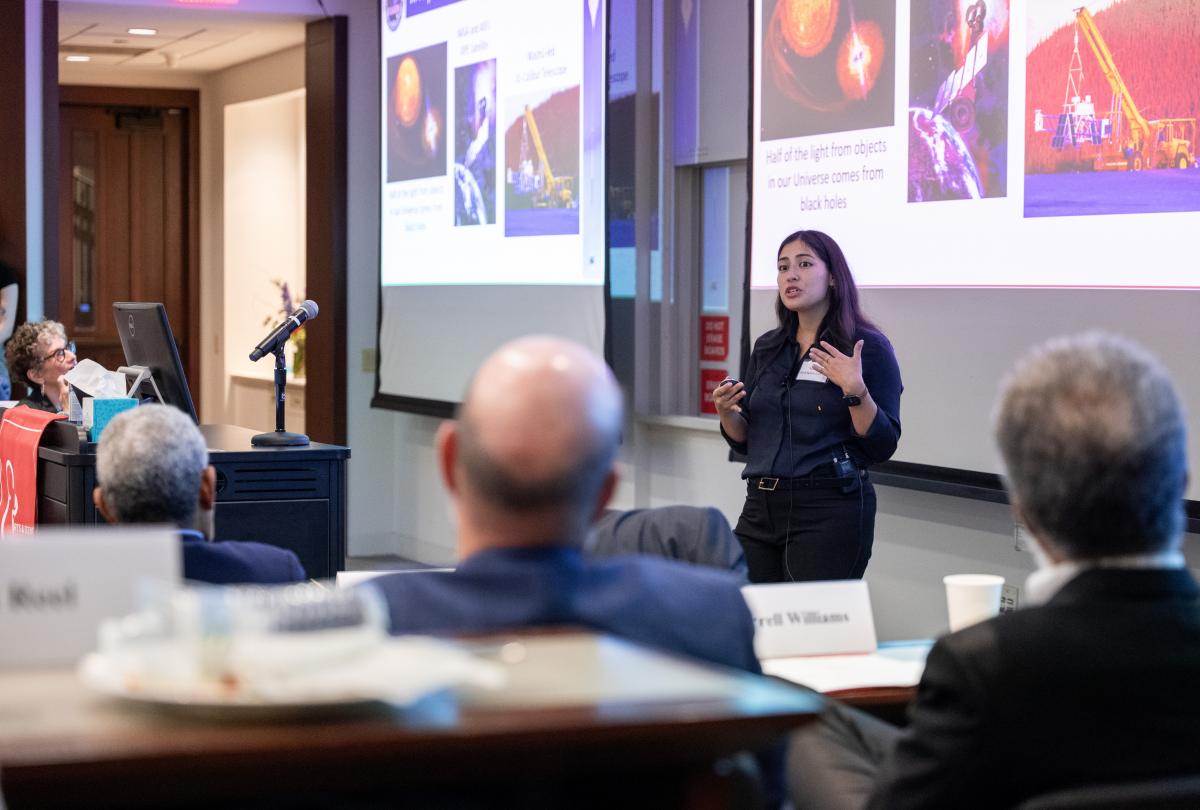
Winner
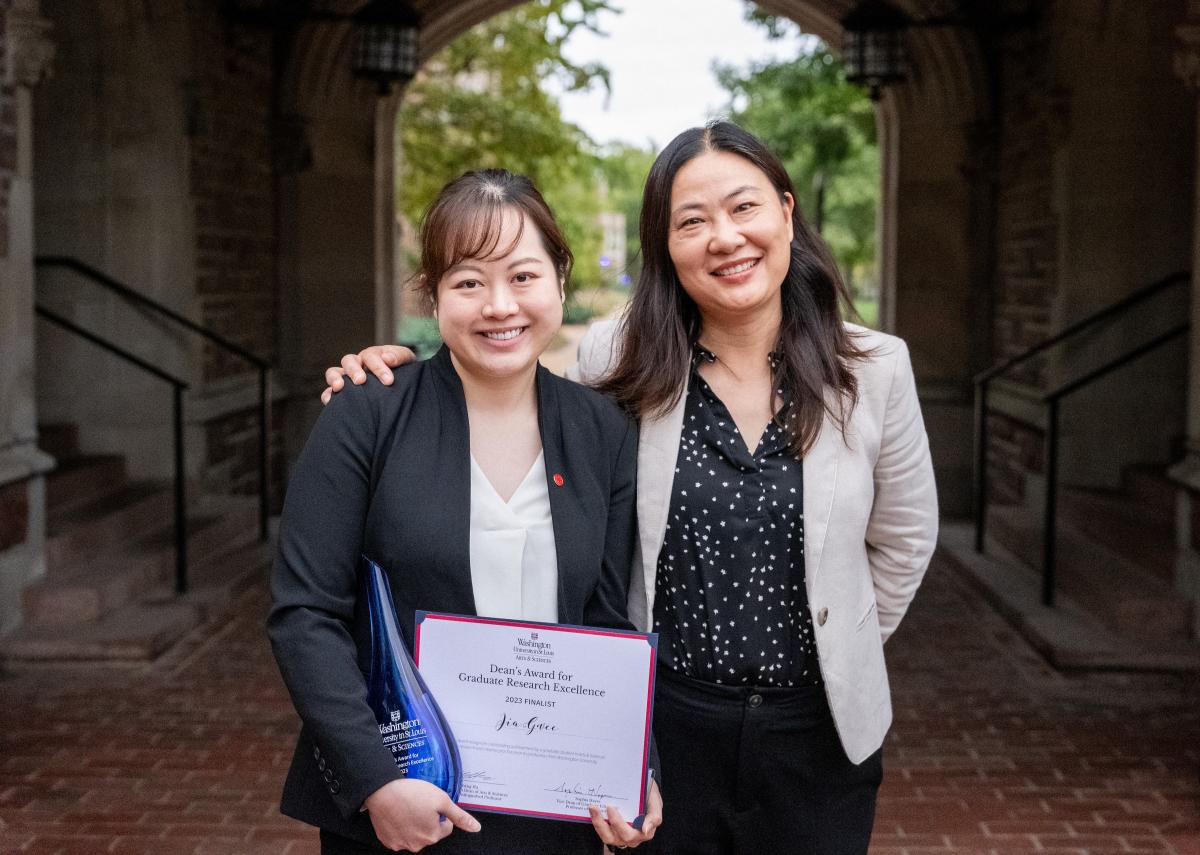
Jia Gwee, Department of Biology
Adviser: Xuehua Zhong
Presentation: “Linking Epigenome Variations to Environmental Adaptation”
Gwee received her bachelor’s in chemistry at the University of California, Berkeley, and her master’s in pharmaceutical sciences at Northeastern University. Before her new graduate school journey, she worked for a few years in the biotechnology industry in Cambridge, Massachusetts, where she developed a strong interest in epigenetics research. She is currently a doctoral candidate in the Department of Biology, studying plant epigenetics and epigenomic variations for environmental adaptation in the laboratory of Xuehua Zhong.
Finalists
Taylor Damann, Department of Political Science
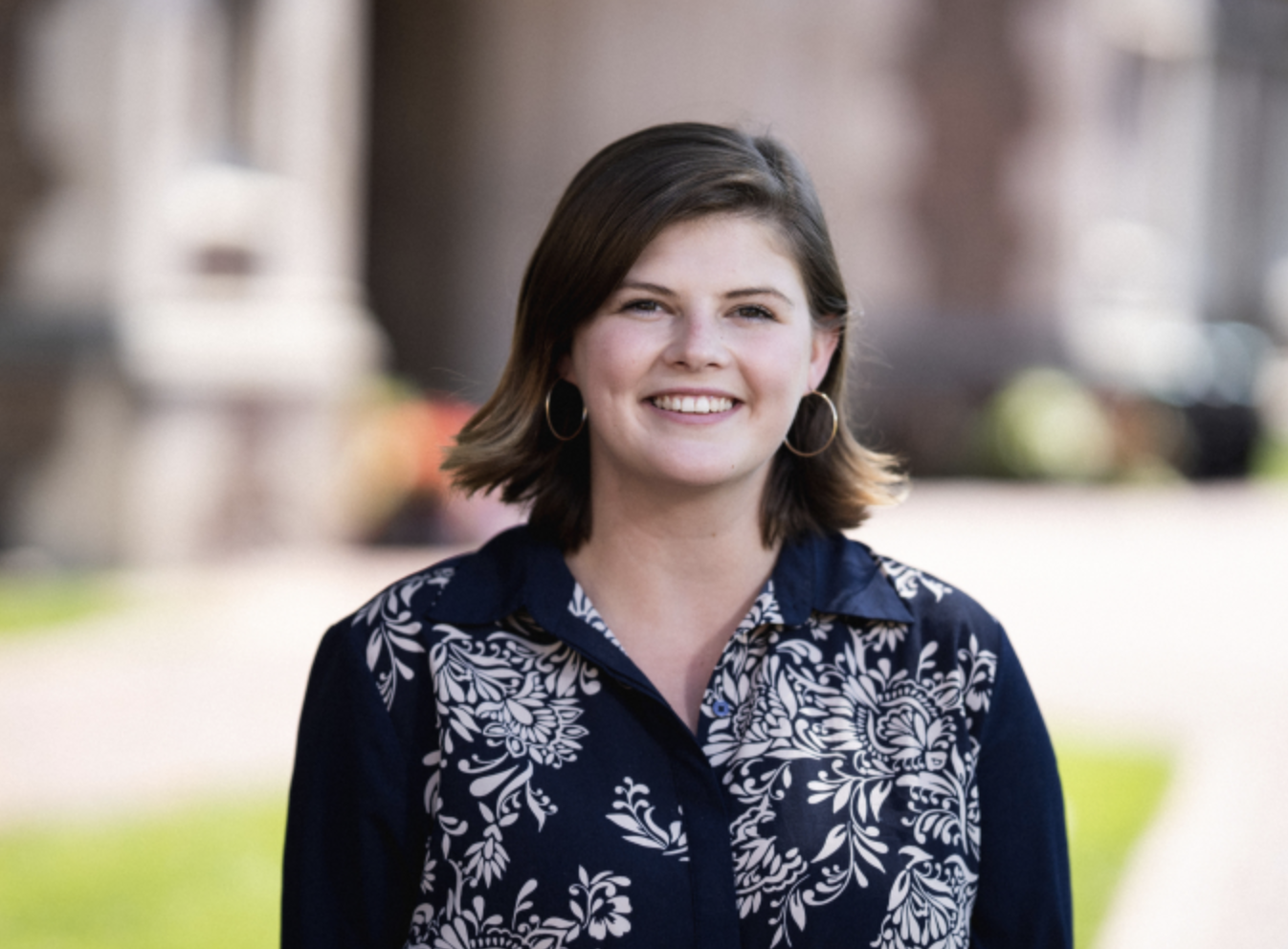
Adviser: Margit Tavits
Presentation: “Persistence of Gender (In)Equality: Evidence from Skeletal Records”
Damann, a doctoral candidate in political science, is studying the downstream consequences of violence and gender inequality. She has professional expertise in the Eastern European region, having previously served the U.S. Air Force and working as an independent journalist in Ukraine. Her work has been published in the Proceedings of the National Academy of Sciences and Comparative Political Studies, and has been covered by news outlets such as Science Daily and the Kyiv Post. Her research has been supported by the Weidenbaum Center on the Economy, Government and Public Policy.
Xiaojin "Jin" Ma, Department of Psychological & Brain Sciences
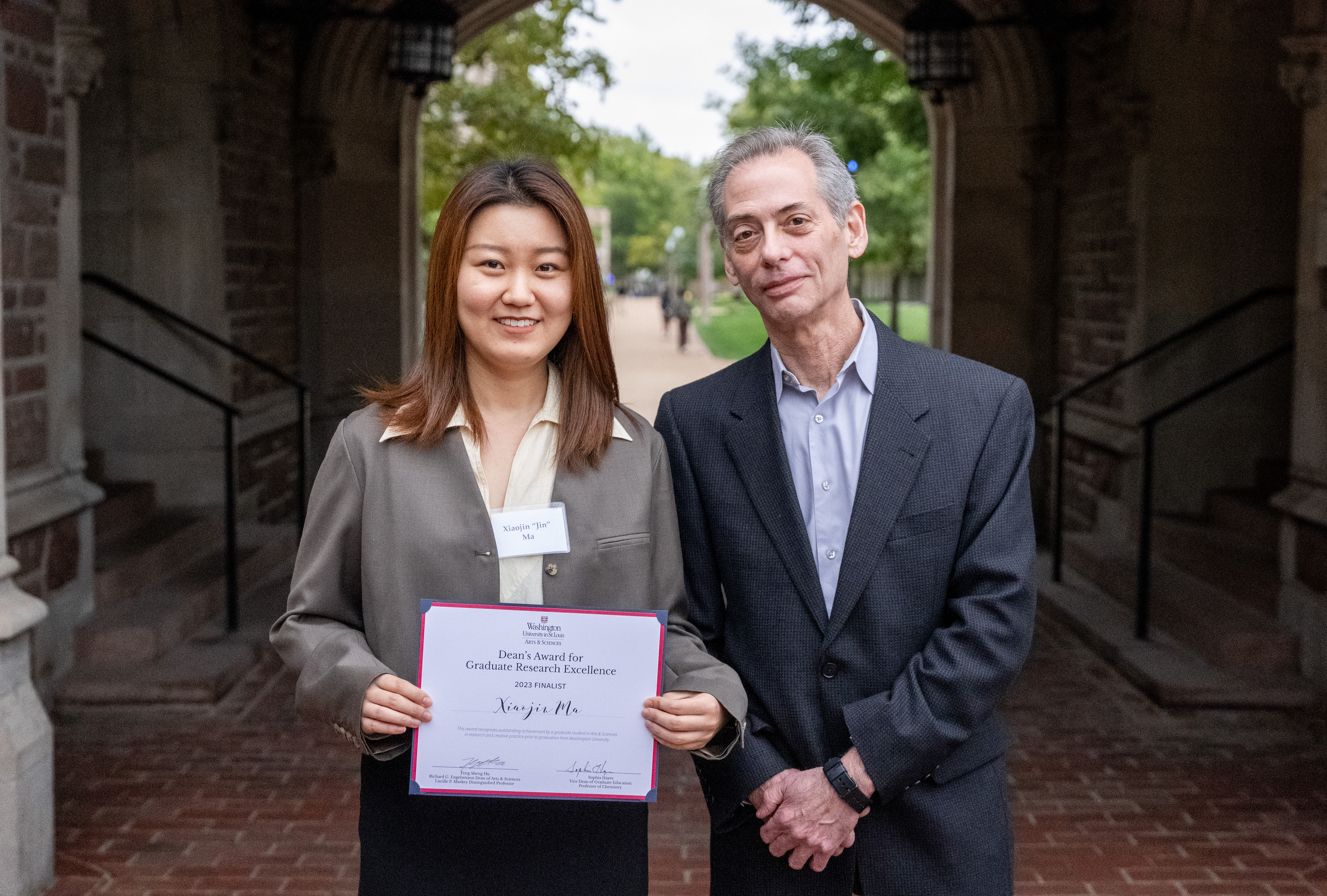
Adviser: Richard A. Abrams
Presentation: “Ignoring Unpredictable Visual Distraction”
Ma is a doctoral candidate in the Department of Psychological & Brain Sciences researching how people pay attention to elements of visual scenes. With information overload in our everyday lives, this research informs how people actively exert control of visual attention to select relevant information. Her studies use behavioral methods, eye tracking, and computational modeling, and have discovered the amazing flexibility of the visual system in inhibiting salient, unpredictable distractions. Ma received her bachelor’s degree in psychology from South China Normal University and will continue to pursue her passion for research as a postdoctoral scholar after graduating from WashU in 2023.
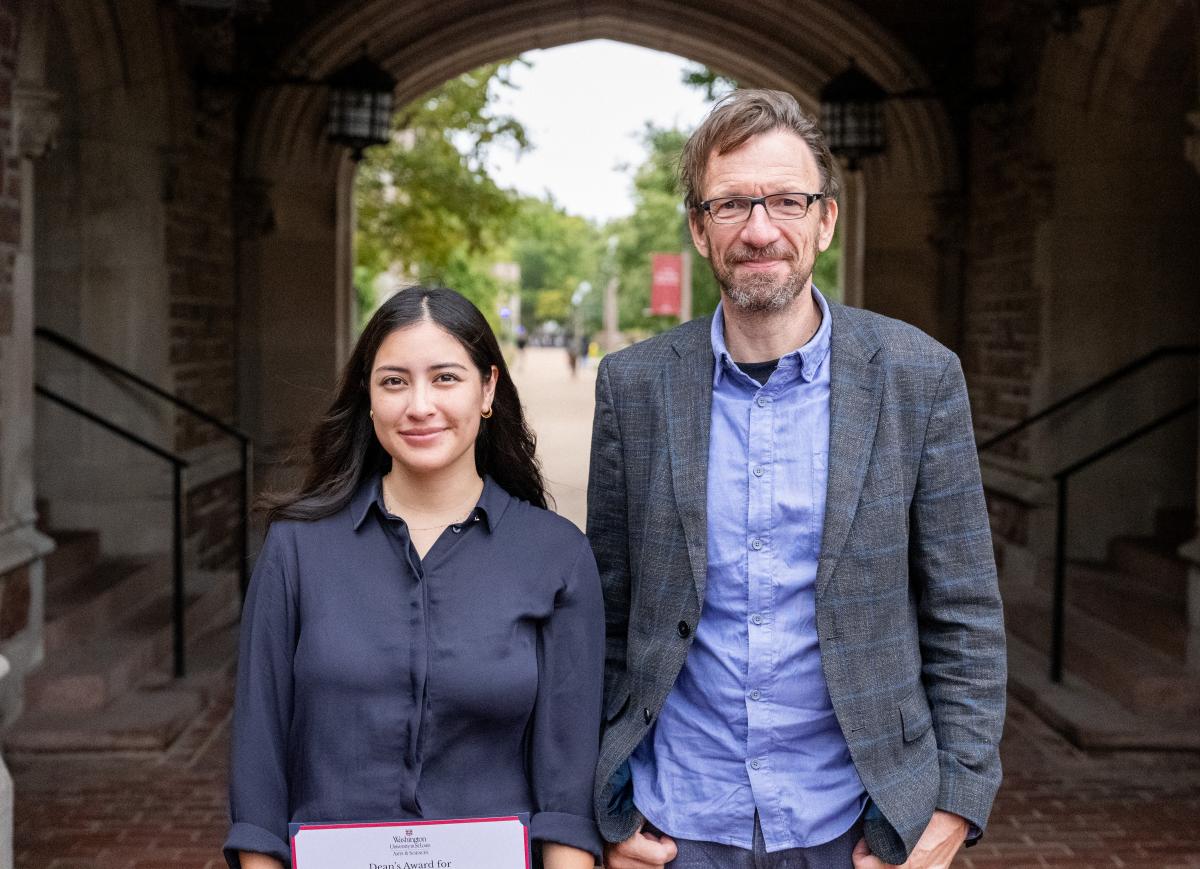
Nicole Rodriguez Cavero, Department of Physics
Adviser: Henric Krawczynski
Presentation: “A Light in the Dark: X-Rays from Black Holes”
Cavero is a doctoral candidate in physics working with Henric Krawczynski on high-energy astrophysics. Her group develops balloon-borne missions including XL-Calibur, which examines the X-ray polarization signatures from various astrophysical sources, and DR-TES, a state-of-the-art cryogenic gamma-ray detector. Cavero's research focuses on the geometry and emission mechanisms of black holes. She has been involved in the analysis of several observations for the recently launched Imaging X-ray Polarimetry Explorer. Cavero looks forward to deepening her understanding of the interactions between key components of the black hole system through a computational lens during her John Templeton Foundation fellowship.
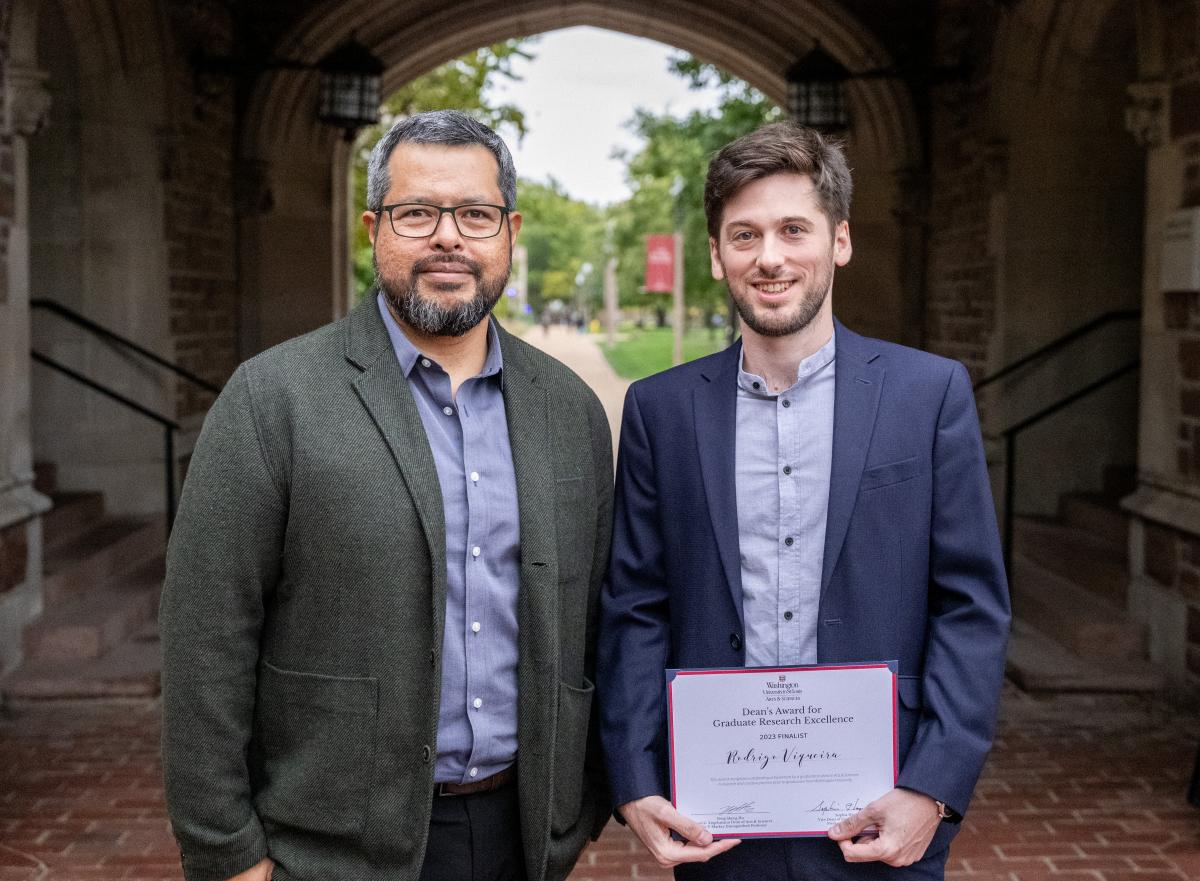
Rodrigo Viqueira, Hispanic Studies
Adviser: Javier García-Liendo
Presentation: “The Allure of Modernity: Afro-Uruguayan Press, Black Internationalism and Mass Entertainment”
Viqueira, a doctoral candidate in Hispanic studies, is writing a dissertation on the intersection of labor and sound media in 20th-century Argentina, Brazil, and Uruguay. His book "Negrismo, vanguardia y folklore" was published in 2019, and his work has appeared or is forthcoming in the Latin American Literary Review and the Journal of Latin American Cultural Studies. He earned a master's degree in Latin American literature from the Universidad de la República (Uruguay).
Semifinalists
Chukwuebuka Ibeh, Department of English
Ann Marie Jakubowski, Department of English
Dain Lee, Department of Economics
Guanghui He, Department of Physics
Aryeh Miller, Department of Biology
Shruti Santosh, Philosophy-Neuroscience-Psychology Program
